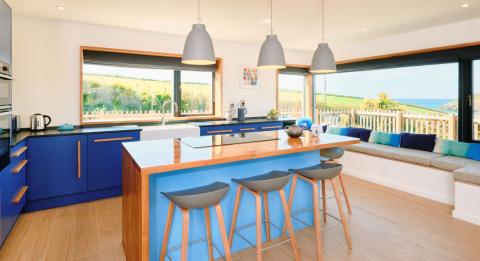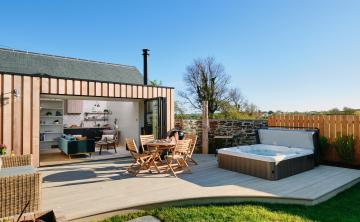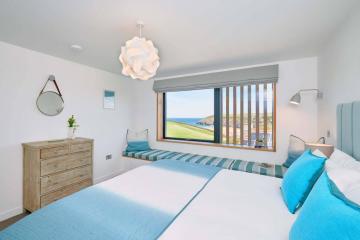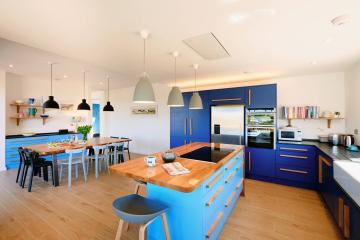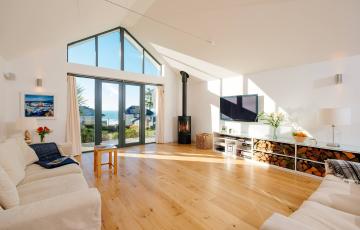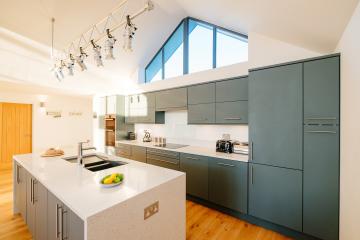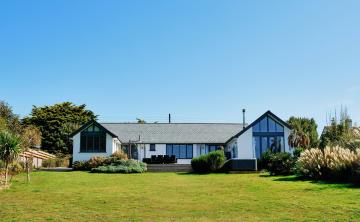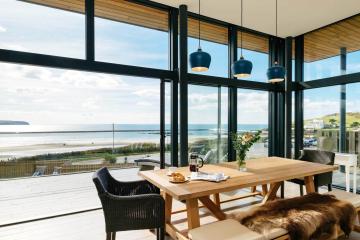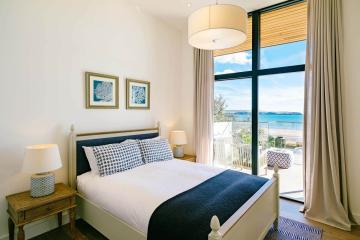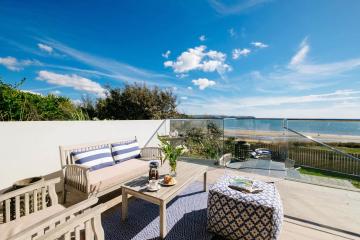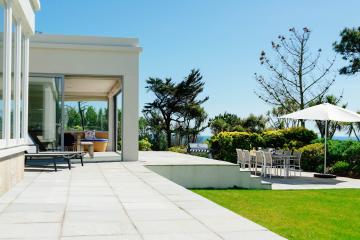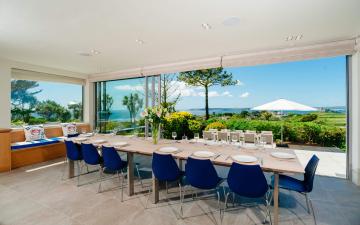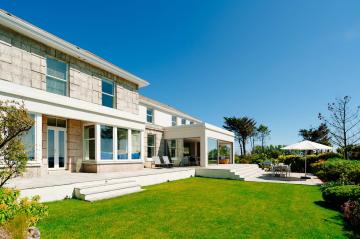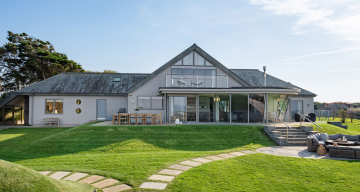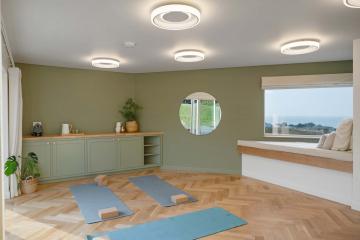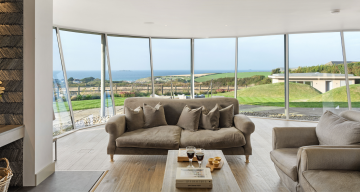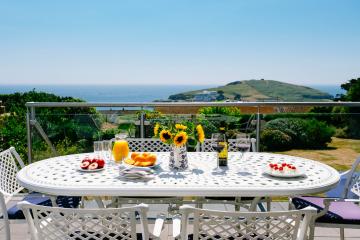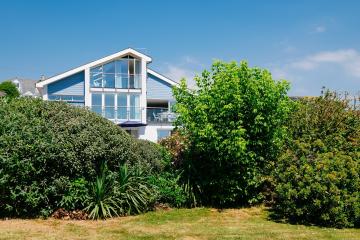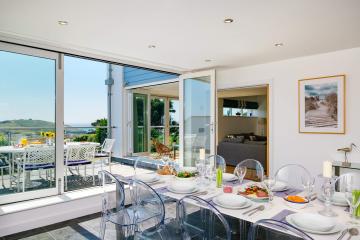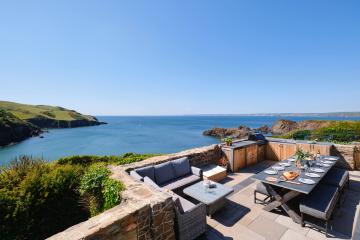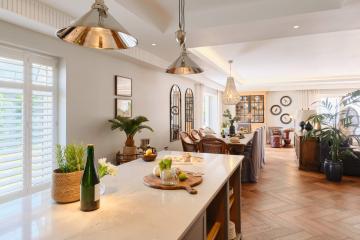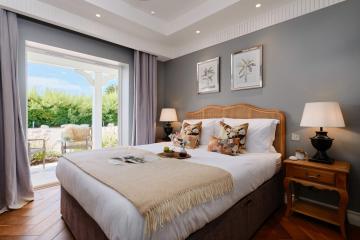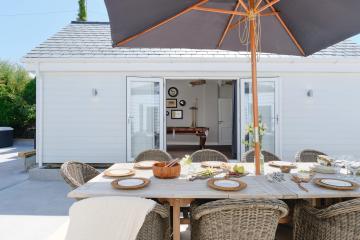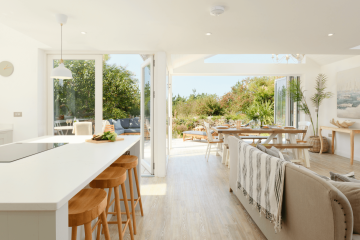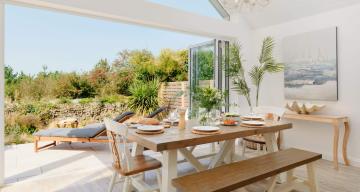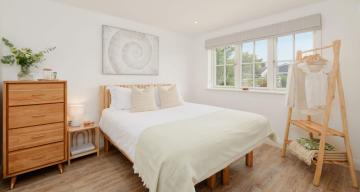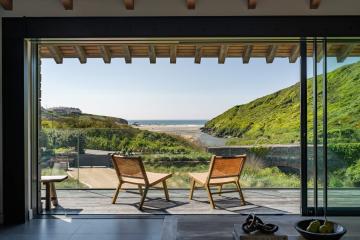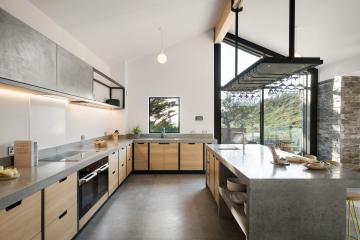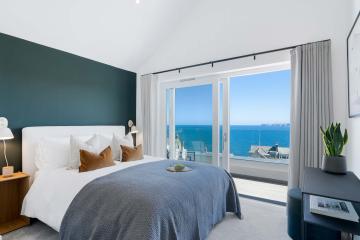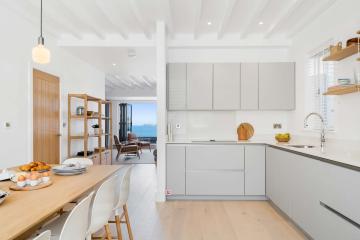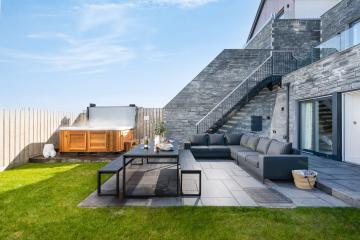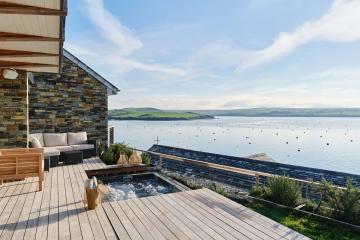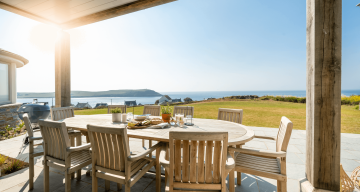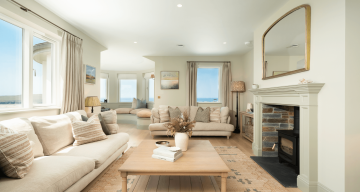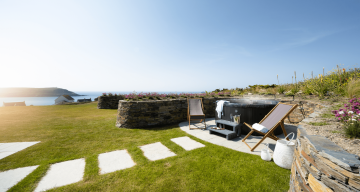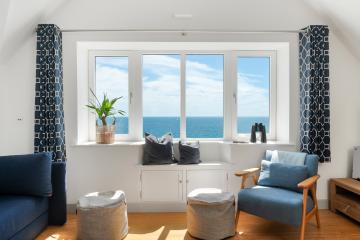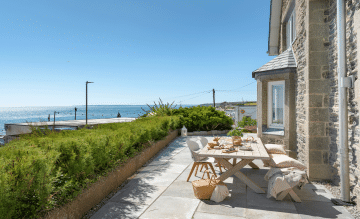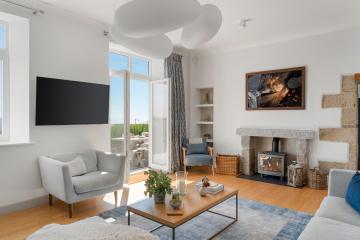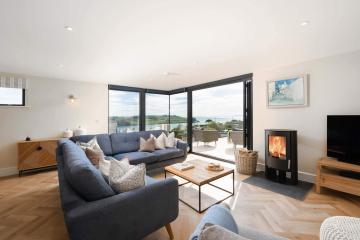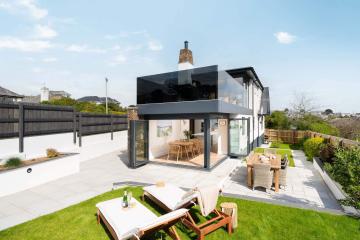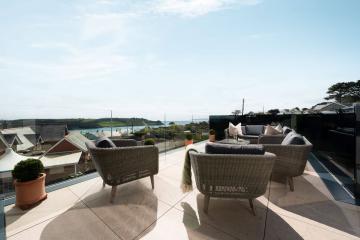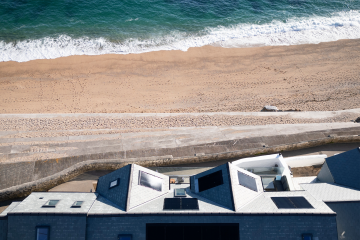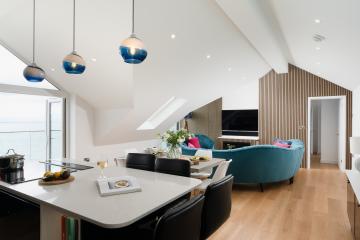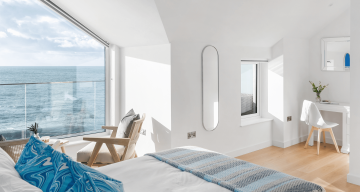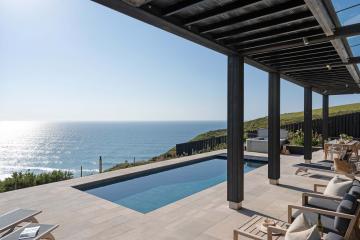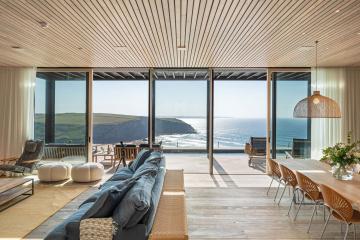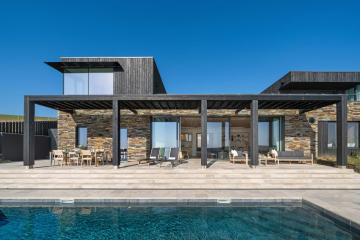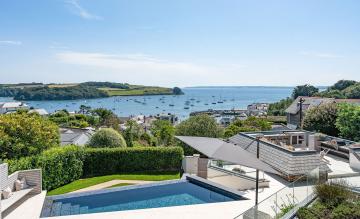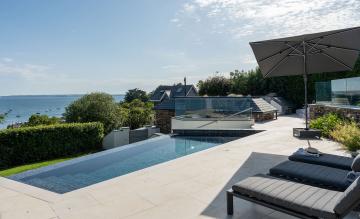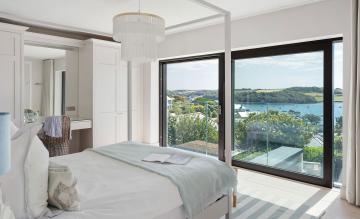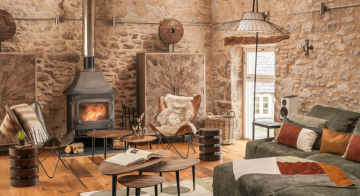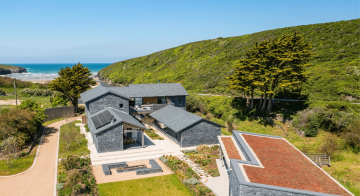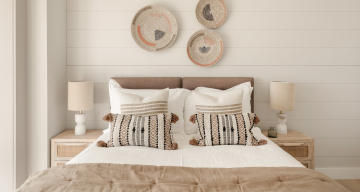Small changes for the environment
At Perfect Stays, we’re committed to protecting the beautiful landscapes we call home. We’re always looking for ways to reduce our environmental impact, support better practices, and inspire more sustainable travel experiences.
That’s why we’ve put together a list of simple yet effective changes to elevate your holiday home’s eco credentials. Whether you’re in the early planning stages of a build or looking for small upgrades to your existing home, these ideas can make all the difference.
Install an electric car charger
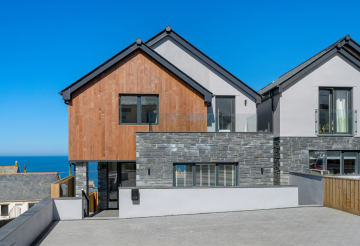
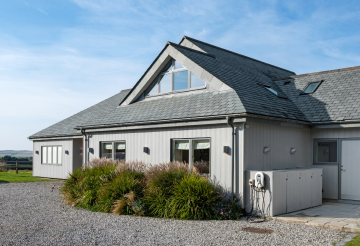
Left: Gwel Arvor in Port Isaac. Right: Pentyak in Harlyn Bay.
More guests are making the switch to electric vehicles, and an EV charger is becoming an increasingly expected feature in luxury holiday homes. Around 60% of our properties already include one, and we'd recommend offering it on a pay-as-you-go basis.
We’d recommend a Zappi EV charger, as it's compatible with pay-at-point services like Monta or Tap Electric – properties like Tamarisks, Gwel Arvor, and Pentyak use these successfully.
Support local brands in your welcome hamper
Sourcing locally not only reduces your carbon footprint but also helps support small businesses in your area. The South West is brimming with excellent bakeries, delis, and farm shops – making it easy to fill your welcome hamper with fresh, seasonal and delicious produce.
Many of our homeowners are doing this beautifully. Cornerways and Seaglass House include Da Bara Bakery’s famous bread baked mere moments away in St Mawes, while Prennek House sources its hamper from a local farm. Driftwood works with Fee’s Food in Rock, a nearby deli, to put together their highly rated hamper and Four Geese uses Flo's Kitchen who are based just down the road in Polzeath. And both The Cove and Morning Tide include locally made juices from Healy’s Cyder Farm, and milk and cream from Cornwall’s Trewithan Dairy.
Incorporate renewable energy sources
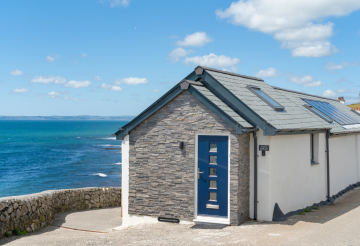
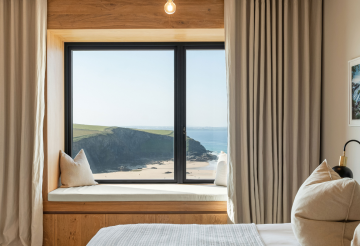
Left: Salt Spray in Porthleven. Right: Red Cove in Mawgan Porth.
If you’re looking to make a bigger change, consider harnessing natural fuel resources with solar panels, ground source heat pumps (GSHPs), or mechanical ventilation heat recovery (MVHR) systems. These can reduce your home’s reliance of fossil fuels and cut down on long-term running costs – something to bear in mind if you’re in the early stages of your build or renovation.
Homes like Salt Spray and The Old School House in Porthleven already use solar energy with panels designed to blend in with the roof tiles. Using their south-facing position to convert sunlight to power their appliances, heating, and lighting. During the summer months, any excess energy can be stored in a battery or fed back into the national grid.
Brynia, Prennek House and Red Cove use MVHR systems, which help maintain a comfortable indoor temperature while also improving the air quality in each room. These systems work by extracting stale air and replacing it with fresh, filtered air from outside – all while recovering heat from outgoing air to warm incoming air. All in all, meaning less energy is needed to heat the home, lowering energy bills and reducing the environmental impact – a win-win.
There are also GSHPs to consider. Used by Beachfront and Avocet in Devon, they use the constant temperature of the earth to provide efficient heating and hot water. Unlike traditional gas or oil boilers, GSHPs don’t burn fuel to generate heat, making them a much more sustainable alternative with lower carbon emissions.
Introduce planet-friendly toiletries
A simple yet effective swap, switching to organic toiletries helps reduce plastic waste and harmful chemicals. Brands like Ecover, Smol, and Eco-Living offer refillable, plant-based cleaning products, while luxury soap brands like Kitty’s Herbery and Bloom Remedies provide high-end, sustainable soaps and hand creams for bathrooms and kitchens.
Several of our homes, including Red Cove, The Nook, and Prennek House already use Who Gives a Crap toilet paper - made from recycled and renewable bamboo and paper, with carbon-neutral shipping. You could also consider using Naked Sprout or The Cheeky Panda which will deliver in bulk, making it easy to stock up for changeovers.
Use repurposed and local materials
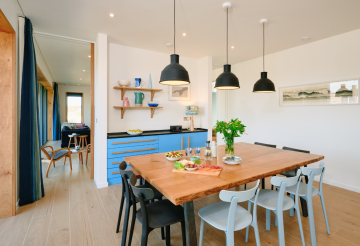
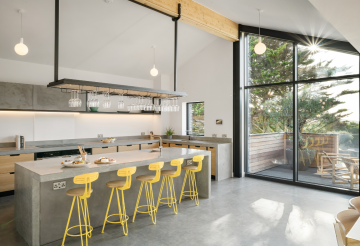
Left: Prennek House in Mawgan Porth. Right: Noordhoek in Porthcothan.
Sustainable design starts with the materials you choose. Noordhoek and Prennek House have both incorporated reclaimed materials into their builds, from Noordhoek’s Spanish tiles to Prennek House’s blankets made from recycled plastic water bottles.
Both properties also showcase Cornwall’s rich natural materials and craftsmanship. Prennek House’s larch cladding and build was designed by Truro’s KAST Architects and Noordhoek worked with Camelford’s Coast Creative to design its woodwork, furniture and kitchen. Rundell Associates also took a similar approach with Red Cove and Ferryside, incorporating Trebarwith Slate and Cornish clay plaster into their design.
Support local artists
Sourcing artwork locally is another way to reduce your home’s carbon footprint while celebrating the South West’s incredible creative talent. Prennek House features pieces by Nicole Haidaripour, Fiona Mills, Merlyn Chesterman, and embroidery by Kate Tarling – all of whom are local to Cornwall.
If your holiday home is in Cornwall, each May local artists, sculptors, and illustrators open up their private galleries as part of the Open Studios initiative. It’s a great way to discover new and unique pieces for your home, and allows you to support the local creator community too.
Run your home from a harvested water supply
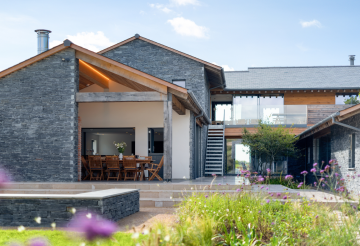
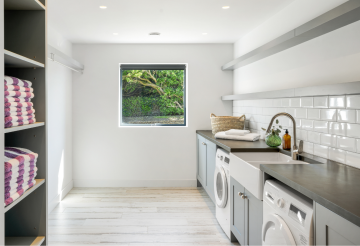
Above: Noordhoek in Porthcothan.
For a self-sustaining water source, installing a borehole or rainwater harvesting system can significantly reduce reliance on mains water while lowering costs and environmental impact. Homes like Noordhoek and The Old School House already use harvested water for toilets, dishwashers, washing machines, and garden irrigation.
Supply reusable beach equipment
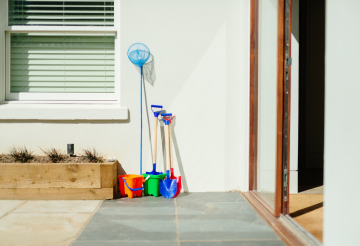
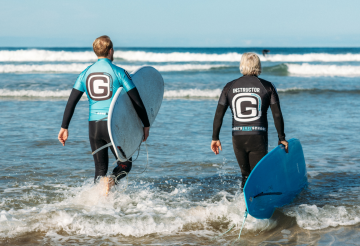
Above: Ednovean House.
Many of our homes, like Waders and Ednovean House, offer guests access to bodyboards, buckets, spades, nets, and toys - helping to reduce the need for single-use purchases while on holiday. Each year, an estimated 16,000 polystyrene bodyboards are discarded on UK beaches, contributing significantly to plastic pollution. These low-cost boards break easily and are often abandoned after just a few uses. By investing in durable, high-quality beach equipment for guests to borrow, you can help minimise waste while enhancing their holiday experience - a simple yet impactful step towards a more sustainable stay.
Additionally, we encourage owners to keep hold of any usable beach equipment inevitably left behind by guests, so future visitors can make the most of it while reducing unnecessary waste. Our Concierge team can also arrange wetsuit and board hire for guests ahead of their stay.
If you’re interested in opening your home up to luxury holiday rentals and would like more information on the above, our Portfolio team are on hand to help. Contact them via email on info@perfectstays.co.uk or call 01208 895 570.
Image credits: All images are our own.
Posted by Bethany Walton
Beth can usually be found on a Cornish beach or enjoying a swim in the sea. She has great insight about where to visit across the county, plus plenty of recommendations for finding the best Cornish ice cream.


